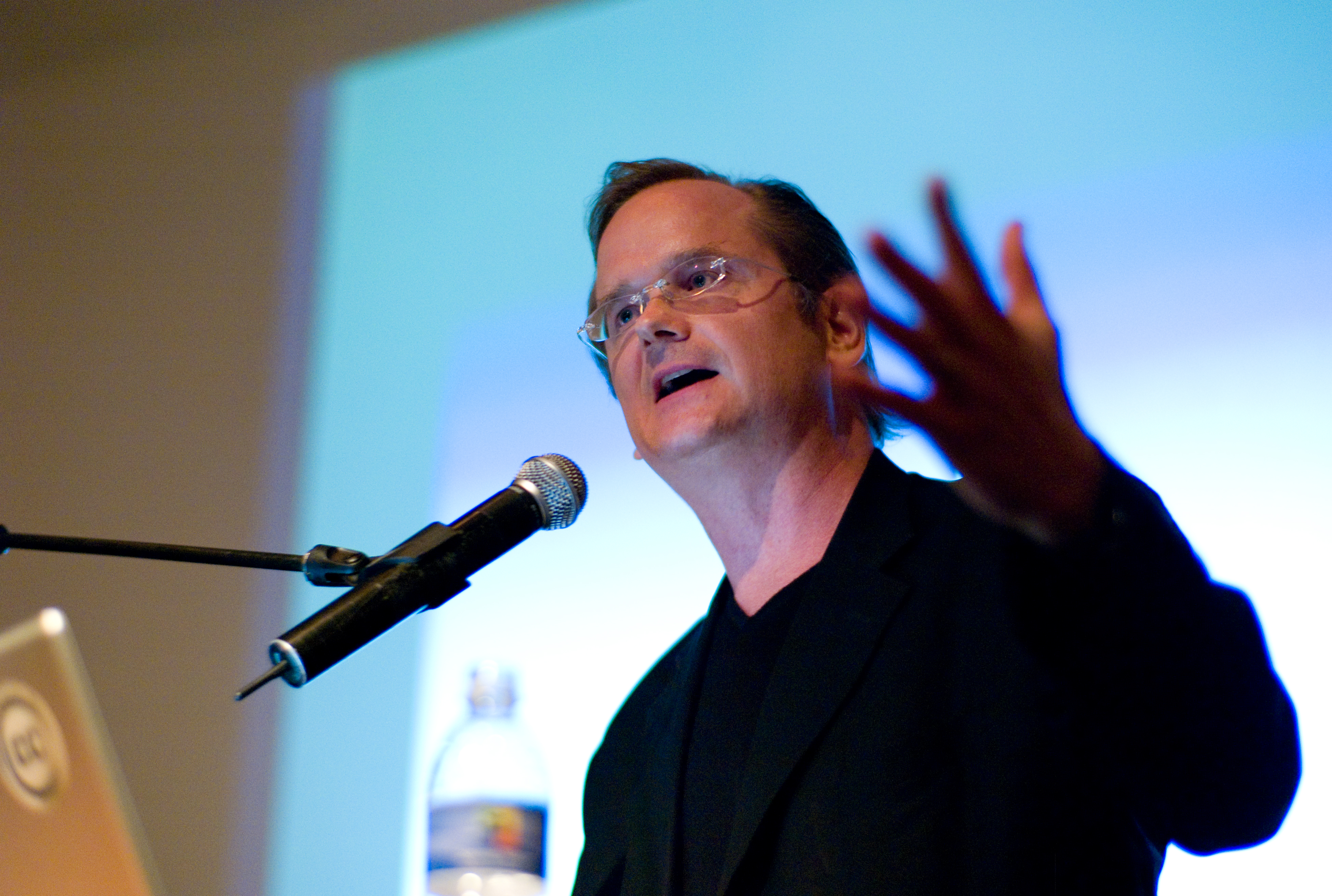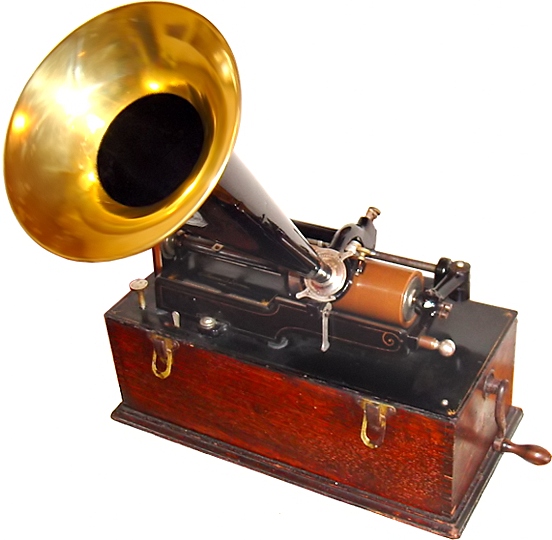 |
| Source: interviewly |
This speaker also brings up John Philip Sousa's famous quote about phonographs in the early 90's,
 |
| Source: cylinder.de |
"These talking machines are going to ruin the artistic development of music in this country. When I was a boy... in front of every house in the summer evenings, you would find young people together singing the songs of the day or old songs. Today you hear these infernal machines going night and day. We will not have a vocal cord left."
We are at a point where we can no longer expect online information to stop growing nor for it to be exclusive. As Lessig mentions, society needs to think of our kids today, in today's conditions, and not the way Sousa underestimated the beneficial power of certain innovations. Lessig closes his speech by requesting for our online community to "open for business," allow the democracy of online information to be spreadable in order to be able to expand, progressed, and improved as a community. This man emphasizes his concern about today's children and implores that having grown to see only technology, there is no rationality in restricting them in their usage of what's available online.
Lowering the barriers to information and diminishing copyright limitations would not make us a read-only culture. We are a read-write culture that produces and consumes, just not the traditional way people used to "read and write." Memes, opinion articles, remixes, mash-ups, parody videos, are only a few of the many examples of compositions that require creativity and that promote a sense of community and collaboration between users all around the world. Copyright would only limit this development of information and like Lawrence Lessig says, "strangle creativity."
 |
| Source: planetsave |
No comments:
Post a Comment